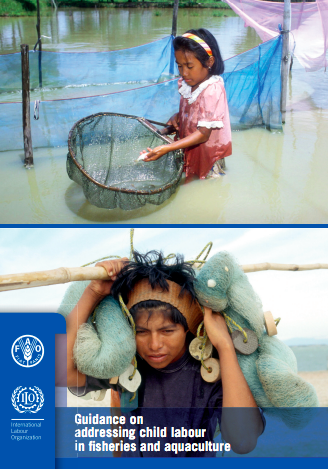This Guidance on addressing child labour in fisheries and aquaculture provides information and analyses current issues in order to improve the understanding of the nature and scope, causes and contributing factors, and consequences of child labour in fisheries and aquaculture. It aims to contribute to the prevention and elimination of child labour in the fisheries and aquaculture sector by assisting governments and development partners to better define and classify child labour in fisheries and aquaculture, to mainstream child labour considerations in relevant development and management policies, strategies and plans, and to take action against child labour. The document is directed at government officials and their development partners, organizations of fishers, fish farmers, fish workers and employers, and other sectoral institutions, the private sector and other stakeholders, in the formal and informal economy. It gives guidance on how to find practical pathways to address child labour and provide support to fishers, fish farmers and fish workers and their communities, in particular in the small-scale sector.

